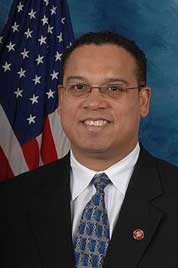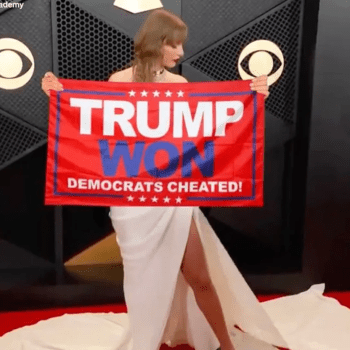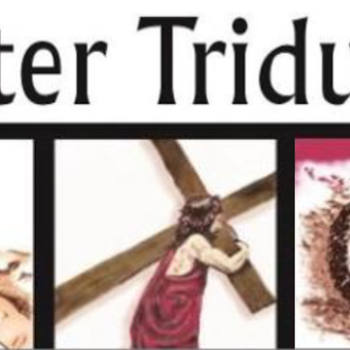By Wajahat Ali
 Keith Ellison, member of the U.S. House of Representatives, is the first African American ever elected to the House from Minnesota. Oh, he's also the first Muslim Congressman in U.S. history [the second Muslim American, Andre Carson, was elected to Congress on March 11, 2008]. By virtue of his racial and religious identity -- a minority within a minority -- Ellison bears the unenviable burden of representing one of the most misunderstood, feared, and mistrusted identities du jour: Muslims.
Keith Ellison, member of the U.S. House of Representatives, is the first African American ever elected to the House from Minnesota. Oh, he's also the first Muslim Congressman in U.S. history [the second Muslim American, Andre Carson, was elected to Congress on March 11, 2008]. By virtue of his racial and religious identity -- a minority within a minority -- Ellison bears the unenviable burden of representing one of the most misunderstood, feared, and mistrusted identities du jour: Muslims.
Ever since his election, notoriety chases Ellison often and unsubtly, most memorably after his 2006 appearance on Conservative commentator Glenn Beck's CNN show, where the host asked Ellison point blank, "Prove to me that you are not working with our enemies." With calm and patience, Ellison answered the question head on and reassured his constituents and the American public that his religious values do not compromise or lessen his patriotism.
Regardless, his critics, including those in Muslim and right-wing circles, continue to project their doubts about not only his political credibility, but also his loyalty to both Muslims and America, respectively. Despite the controversy, in the past two years Ellison has emerged an influential and popular figure winning over a vastly diverse constituency in Minnesota and even gaining supporters and silencing initial skeptics across the nation.
I sat down for a rare and exclusive conversation with the Congressman, where he bluntly addresses a gamut of issues including the charges of his critics, Obama, racism in America, Muslims entering politics, the fear of Islam, the smear campaigns, and how his faith helps him become a better American and Congressman.
We have all heard and seen the speech by Obama's pastor, Rev. Wright, and the response by Senator Obama. Some say Obama's "race" speech was historic, others say he was ducking the race issue. What do you think Obama's response, as well as the fierce criticism of Wright's speech, says about the state of racism in America today?
ELLISON: I think Obama's speech was a transcendent speech. It actually moved us forward in the dialogue for national reconciliation. The fact is that Rev. Wright is coming from a perspective of over 200 years of slavery and 100 hundred years of Jim Crow. Also, he's been a witness to some of the awful devastation that has happened to the south side of Chicago where his church is located. He has seen the awful human toll and how it affects the African American community. That's the perspective he's coming from. That perspective is obviously going to be informed by frustration and anger, and obviously he is a leader in that community and his speeches and sermons are going to reflect that frustration and anger. But I think Obama is bringing us all together: helping us transcend; helping us go further.
The truth is the racial dialogue in America does need some updating. It does need a new way forward. Because so often, we are locked in a cycle of blame and shame; we are locked in a cycle of, you know, just really not getting anywhere. But, the fact is this dialogue does get us somewhere. It is not informed by anger, it is not informed by past wrongs or anything like that. But, it is informed by facts as they exist and it is informed by a need to heal and pull us forward. So, I was really impressed by Obama's speech. I think it will go down in history.
Let's talk about your own personal experiences. Some are very infamous like your moment with CNN's Glenn Beck who had you on air and pretty much straight up questioned your patriotism and loyalty to America based on his assumption or fear regarding your Islam. So, how do you confront that daily reality where you, Keith Ellison an African American and Muslim, are seen as unpatriotic based purely due to your religious beliefs? This must get frustrating.
Well, the thing is you have to face these kinds of challenges with patience. Quite frankly, the barrage of taking hits everyday has made me a better Muslim. I find myself returning to my faith just to be able to deal with this kind of stuff on a regular basis. The Quran says, "The struggle is ordained." Well, certainly it is. But, we have to deal with these challenges with patience, with confidence. We cannot let one person's bitterness turn us bitter. We have to overcome evil with good, right? That's how you do it. You can't overcome evil with evil. You just get more evil.
My thing is to try to urge people who are Muslim and not Muslim to understand America is a country that has deep roots of tolerance and religious inclusion. My message to the Muslim community is keep on doing good works like building clinics, building literacy sessions at the masjid, work with non-Muslim fellow Americans to try to improve things. And keep putting your best foot forward, because if we start going tit-for-tat with those putting out religious bigotry, then we end up just like them.




